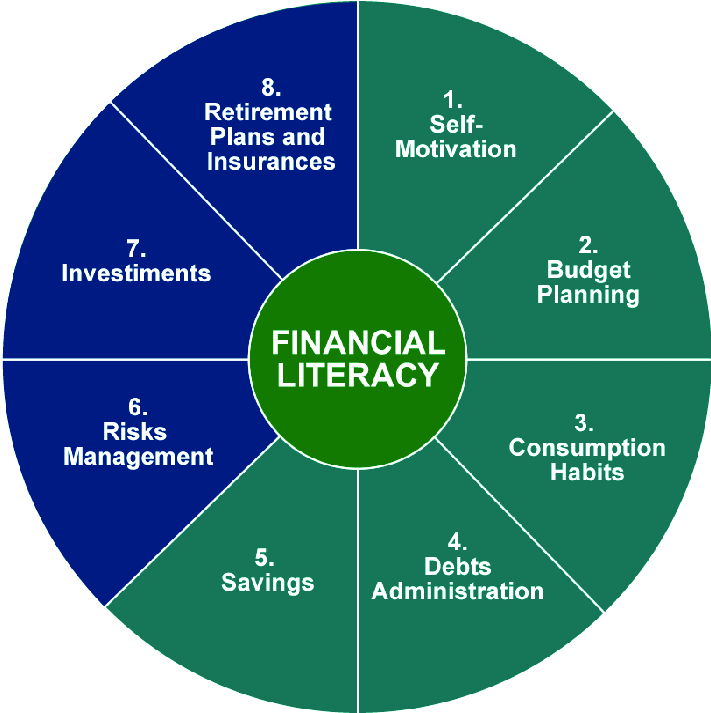
-
Financial literacy and education are foundational pillars of personal and economic well-being. They empower individuals with the knowledge and skills needed to make informed financial decisions, manage money effectively, and secure their financial future. In this article, we’ll explore the significance of financial literacy and education, their impact on individuals and society, and how to improve financial literacy.
The Importance of Financial Literacy
- Enhanced Decision-Making: Financially literate individuals can analyze financial options, understand risks, and make sound decisions about savings, investments, and debt management.
- Debt Management: Financial literacy equips people with tools to avoid excessive debt and handle existing debts responsibly.
- Economic Stability: A financially literate population contributes to economic stability by making informed choices that support their own financial well-being and, by extension, the broader economy.
- Retirement Preparedness: Financial literacy helps individuals plan for retirement, ensuring they have sufficient savings and investments to maintain their desired lifestyle.
- Consumer Protection: Financially literate consumers are less likely to fall victim to financial scams or predatory lending practices.
The Impact of Financial Education
- Better Financial Health: Financial education programs can improve people’s financial health by teaching budgeting, saving, investing, and debt management skills.
- Increased Savings: People who receive financial education tend to save more, create emergency funds, and establish retirement accounts.
- Wiser Investment Choices: Education in financial markets and investment options helps individuals make informed investment decisions aligned with their goals and risk tolerance.
- Reduced Stress: Financially literate individuals experience less financial stress and anxiety, leading to improved mental and physical health.
- Generational Impact: Parents who are financially literate can pass down these essential skills and knowledge to their children, creating a positive generational impact.
Ways to Improve Financial Literacy
- Formal Education: Incorporate financial literacy into school curricula at all levels to equip young people with essential financial skills.
- Workplace Programs: Employers can offer financial wellness programs and resources to help employees make informed financial decisions.
- Online Resources: Accessible websites, podcasts, and videos provide valuable information on various financial topics.
- Financial Workshops: Local organizations and financial institutions often offer workshops on budgeting, investing, and retirement planning.
- Financial Advisors: Seek guidance from certified financial planners or advisors who can provide personalized financial education and advice.
- Budgeting Apps: Use financial management apps that track expenses, set budgets, and provide insights into spending habits.
- Reading and Self-Study: Books and publications on personal finance, investing, and economic principles are valuable sources of knowledge.
Conclusion
Financial literacy and education are essential components of a prosperous and stable society. By promoting financial literacy, we empower individuals to make informed choices that benefit not only themselves but also the broader economy. Governments, educational institutions, employers, and individuals all have a role to play in fostering financial literacy and education. With improved financial knowledge, individuals can take control of their financial futures, achieve their goals, and lead financially secure and fulfilling lives

